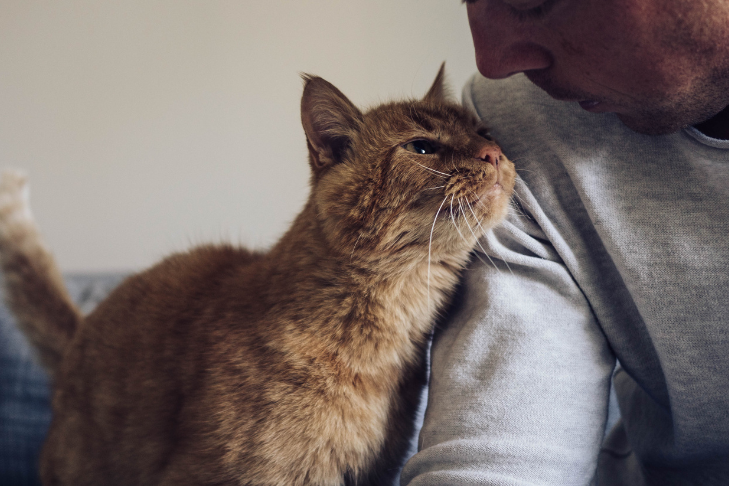Why Is My Cat Suddenly Clingy?

Cats have a reputation for being independent, but any cat parent knows their personalities can shift from aloof to affectionate in the blink of an eye. If your normally self-sufficient feline has started following you everywhere, meowing more often, or demanding extra cuddle time, you may be wondering: why is my cat suddenly clingy?
Let’s break down some of the most common reasons for clingy cat behavior and how you can support your furry friend.
Common Reasons Cats Become Clingy
If your cat’s behavior has recently changed, it’s natural to wonder what’s driving the sudden shift. While every cat is unique, there are several common factors that can cause clinginess to appear out of the blue. Understanding these potential triggers can help you respond in a way that reassures your feline companion and supports their overall well-being.
1. Environmental Changes
Cats thrive on routine. Moving to a new home, rearranging furniture, introducing a new pet, or even a small shift in your daily schedule can leave your cat feeling uncertain. Clinginess can be their way of seeking reassurance and stability during times of change.
2. Stress
Just like humans, cats can experience stress from things like loud noises, unfamiliar visitors, or travel. When your cat feels uneasy, sticking close to you may provide the comfort and security they’re looking for.
Providing safe spaces, such as cozy hideaways or elevated perches, can help reduce stress and give your cat more control over their environment.
3. Seasonal or Weather Shifts
Some cats become clingier during storms, cold snaps, or hot weather. Changes in air pressure, temperature, and even daylight hours can influence your cat’s behavior. Curling up near you might simply be their way of feeling secure when the environment feels unpredictable.
4. Boredom or Lack of Stimulation
If your cat is under-stimulated, they may lean on you for attention and entertainment. Indoor cats especially benefit from enrichment activities such as puzzle feeders, window perches, or interactive play sessions to satisfy their curiosity and natural hunting instincts.
5. Age-Related Behavior
As cats grow older, their needs and personalities can shift. Senior cats sometimes become more attached to their pet parents, seeking comfort as their senses change. On the flip side, kittens often display clinginess as part of their normal development.
6. Strengthening Your Bond
While clinginess can sometimes point to stress, it can also be a sign that your cat feels safe with you. Increased cuddling, vocalization, or following you around can simply mean your bond is deepening. Paying attention to these cues helps you respond in ways that support your cat’s emotional well-being.

How to Support Your Cat When They’re Extra Clingy
When your cat starts sticking by your side more than usual, the best thing you can do is respond with patience and care. Enrichment activities, cozy hiding spots, and a consistent daily routine all help your feline feel more comfortable and secure.
For cats that may need added calming support, Feline Stress Releaf CBD Oil with Catnip can be a gentle way to promote relaxation and overall wellness. The catnip flavor makes it especially palatable, even for picky cats, so it’s easier to work into their routine. Whether it’s environmental changes, loud noises, or everyday stressors, Stress Releaf can help your cat feel more at ease while you continue strengthening your bond.
Be sure to introduce supplements gradually and always follow the recommended usage guidelines for your cat’s size and weight.
When to Consult Your Veterinarian
Occasional clinginess is usually nothing to worry about, but if the behavior comes on suddenly and is paired with other concerning changes (like loss of appetite, lethargy, or excessive vocalization) it’s a good idea to check in with your veterinarian. They can rule out underlying health issues and give you peace of mind.
How to Respond When Your Cat Becomes Extra Affectionate
Cats may be known for their independence, but sudden clinginess is often their way of communicating that they need extra comfort or reassurance. From environmental changes to boredom or even just a stronger bond forming, there are many reasons your cat might stick closer to you than usual.
By paying attention to these shifts and offering a mix of enrichment, routine, and patience, you can help your cat feel secure and supported. Every feline is unique, so understanding their cues is key to keeping them happy, healthy, and comfortable at every stage of life.


